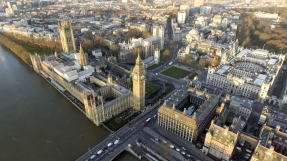Rich must reduce emissions for poor to develop
Countries like China and India have been criticised by the West for refusing to commit to emissions targets, despite being amongst the world's top greenhouse gas emitters.
"Climate change is directly linked to economic growth," Sunita Narain, an environmentalist who has taken on the government on issues from air pollution to waste management, told Reuters ahead of the Reuters Environment Summit next week.
"With climate change, we are looking at sharing the resources of the world and we are looking at bringing some justice in the way they are distributed -- so the rich world has to reduce its emissions so that the poor world can increase theirs."
India, whose economy has grown annually by 8 to 9 percent in recent years, contributes around 4 percent of global greenhouse gas emissions as its consumption of fossil fuels gathers pace.
New Delhi says it must use more energy to lift its population out of poverty, something rich nations -- which have burnt fossil fuels unhindered for a century -- should understand.
But the United States, which is one of the biggest polluters in the world, says it will not commit to emission targets until India and China do.
Narain, who heads the New Delhi-based Centre for Science and Environment, said the U.S. argument was "a petty game being played by petty politicians".
"I think there is a lack of morality in the western world whose use of fossil fuels and emissions far outstrips a country like India or even China," said Narain, who is known for her outspokenness.
"But it's not about blaming India or the rest of the world. It's about cooperation and there needs to be a framework where countries like India can believe there is justice."
RESPONSIBLE DEVELOPMENT
Narain -- who last year fought against major soft drinks manufacturers Pepsi and Coca-Cola accusing them of selling pesticide-contaminated drinks -- said India had to set a responsible development agenda by keeping emissions low.
"We haven't built all our grids yet, we haven't got all our power stations in place, we haven't motorised to the level that the rest of the world has motorised -- so we can today reinvent growth without the pain of pollution."
Clean technology could be used to build new power stations, cities could be built with good public transport systems and energy efficient green buildings could be constructed, she said.
"Countries like India can leap-frog -- they don't have to go through the dirty polluting route that the rest of world has taken," said Narain.
But for this, she said, poor nations needed clean carbon technologies as well as funds from industrialised nations.
Scientists say the Indian subcontinent will be one of the most affected regions in the world, with more frequent natural disasters of greater severity, more diseases like malaria and greater hunger.
Narain said India had failed to put its point across to the international community and needed to be more vocal.
"My biggest annoyance is that my own political leaders are not coming up to the challenge," she said.
"They are not telling the West that our floods today are because of climate change, 'our droughts are increasingly because of variable rainfall, our glaciers are melting and that we are going to send you the bill'."













